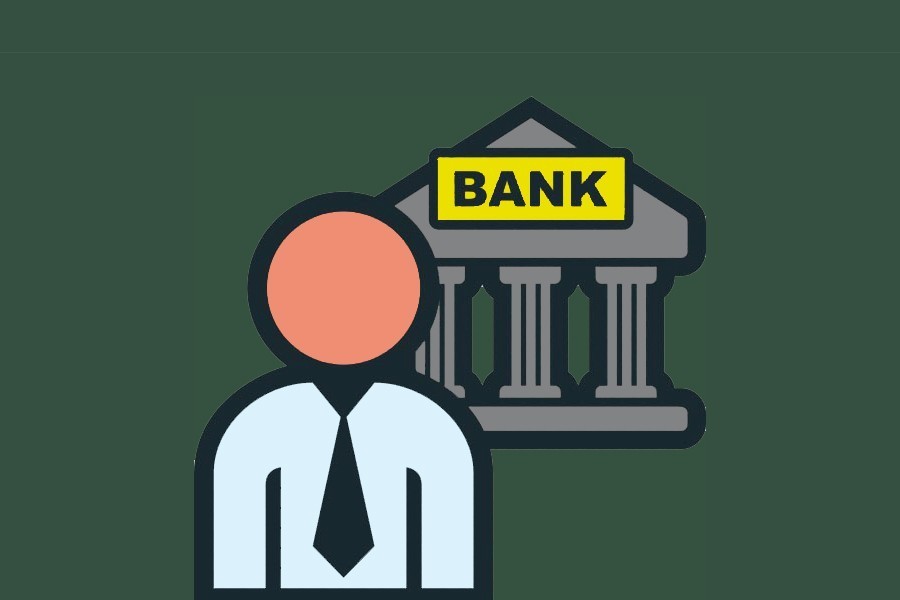
Published :
Updated :

Speakers at a webinar from Nepal and Bangladesh on Friday said the board of directors of banks must now exercise unique oversight responsibility, based on updated and regular information of the Covid-19 pandemic.
They said the boards must receive updated and regular information and reports on the existing and potential risks that might be evolving alongside their regular oversight responsibility.
However, the bankers from both Nepal and Bangladesh opined that there must be clear distinction between the role of the management and the board members in the event of the latter taking additional monitoring responsibility.
They also said running after high profitability attained during normal situation could prove ambitious and might lead to damaging effects for future business opportunities and reputation..
The speakers said banks must offer incentives and make employees free from fear of job loss for getting the required productivity from them and adaptation to the changing situation.
The bankers and academicians from Nepal and Bangladesh were speaking at a webinar - 'Reshaping Governance in Banking in Covid-19 Regime' - jointly organised by QoQ Asia and Banking, Finance and Insurance Institute of Nepal (BFIN)
Prof. Dr. Shah Md. Ahsan Habib and Dr. Md. Shahid Ullah of Bangladesh Institute of Bank Management (BIBM) presented the keynote paper on the topic.
Speaking at the programme, Bangladesh Krishi Bank Managing Director Md Ali Hossain Prodhania said they hold meetings with the board of the bank frequently, almost every alternate day.
He said the board, the management team and the risk management team should work together in this time of crisis.
NMB Bank Nepal Chairman Pawan Kumar Golyan said they have focused on larger impacts, which would come later.
He said banks' focus should be on productive sectors rather than trading only.
All banks in Nepal decided that no employee will lose jobs in the time of the Covid-19 pandemic to ensure smooth operations, he added.
CEO of Mega Bank Limited Anupama Khunjeli said the first thing that banks should do during the Covid-19 outbreak is formulating business continuity plan.
It is possible to make profit even during the situation, if there is proper planning and monitoring. Sustaining the banks and customers should also be considered as profit in the time of pandemic.
She informed that they have completed acquisition of another bank during the pandemic.
Dr Muzaffer Ahmad Chair Professor of BIBM Dr Barkat-e-Khuda said governance in banking continues to be a major issue in the context of the Covid-19 pandemic.
Corporate governance depends on four principles - accountability, fairness, transparency and responsibility.
He also noted that banking community across that world would gain experience from developing countries like Bangladesh and Nepal, as the pandemic is severe in these countries.
Nepal Rastra Bank (NRB) spokesperson Dr. Gunakar Bhatta said there is high risk that poverty, inequality and unemployment will increase during the pandemic.
He also said it is the central bank's role to formulate regulatory policy to recover economy.
Director General of BIBM Dr Md Akhtaruzzaman said a bank's board has very important role in implementing stimulus packages in the developing countries.
He said the country's central bank not only formulates policy measures, but also keeps afloat banks by injecting liquidity.
Prof. Dr. Shah Md. Ahsan Habib said intense oversight responsibility is crucial at this time of the Covid-19 outbreak that must be based on updated and regular information.
He said the boards of banks should continue discussing any implementation issues with the management and evaluate whether any modification to the existing business continuity plan is necessary to cope with evolving issues due to the unique nature of the Covid-19 outbreak.
The boards need to monitor the ongoing adjustments of management with immediate and near-term objectives, the effectiveness of management efforts against those objectives, and ensure that management is both dealing with the immediate issues and looking ahead to the range of potential scenarios.
It is essential that risk management frameworks are revised concurrently during the Covid-19 pandemic.
Besides, regulatory backlash will be costlier for banks, if they do not comply with the regulator's expectations now in the pandemic situation, he opined.
Mr. Habib further said responding to regulatory expectations and national priority is expensive, which is true, but if not complied now, banks would have to pay higher price.
Extensive involvement of board in the decision making process will reduce risk in emergency situation, he added.
bdsmile@gmail.com


 For all latest news, follow The Financial Express Google News channel.
For all latest news, follow The Financial Express Google News channel.